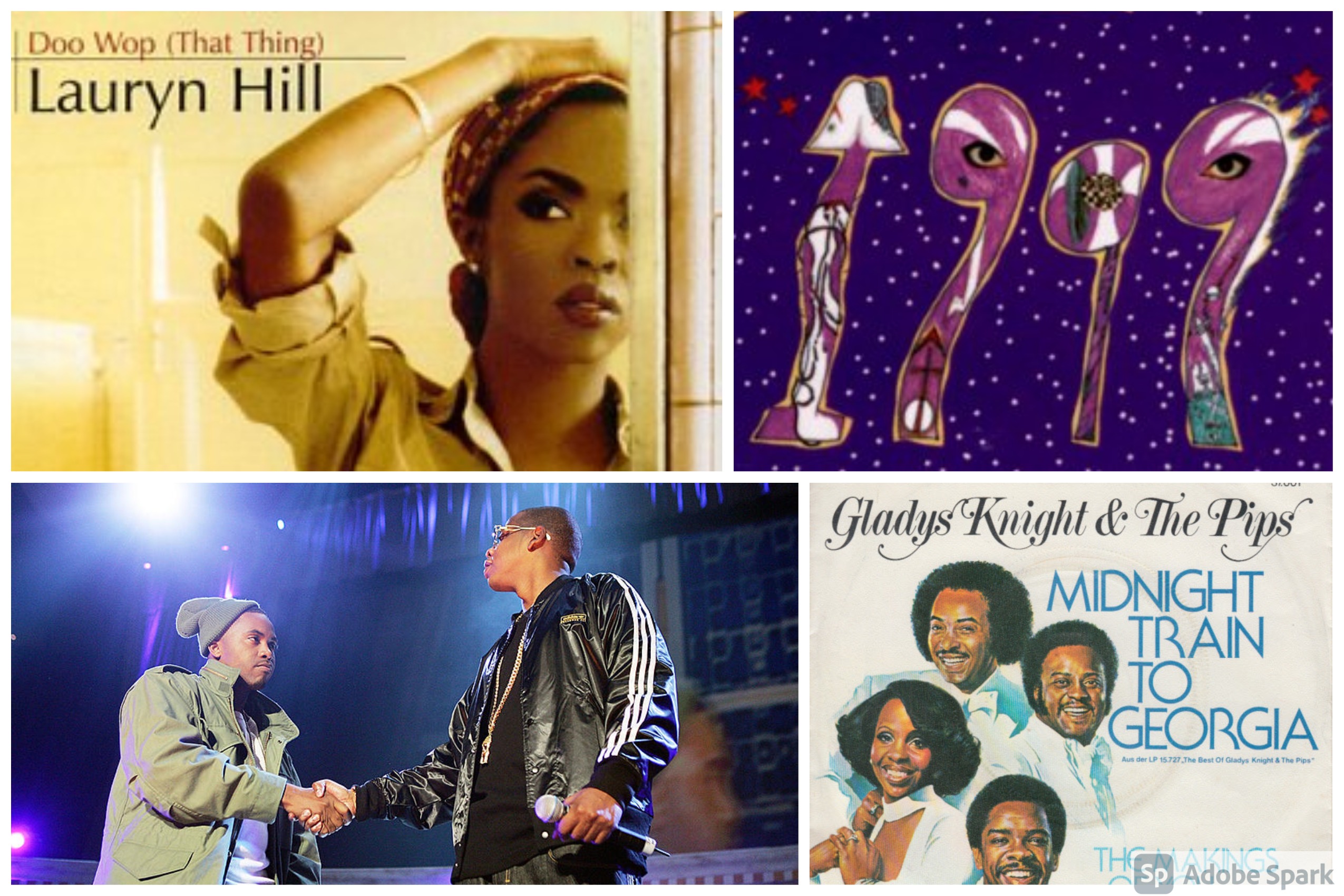
*A lot of notables in Black music had momentous events happen on October 27th, from hip hop to R&B. From 1960 to 2005.
Here are the stories behind each one, in chronological order.
In 1960, Ben E. King left The Drifters and launched his solo career with a song that became an instant classic: “Stand By Me.” It started out as a gospel hymn written by the Philadelphia minister Charles Albert Tindley in 1905 and was popularized by various gospel acts in the 1950s. After hearing the Staple Singers’ 1955 take, he pitched it to The Driffers, but their manager turned it down. So once King left the group, he went into the studio on Oct. 27, 1960 and recorded his own version.
If singer/songwriter Jim Weatherly never knew actor Lee Majors (TV’s “Six Million Dollar Man”), and Majors had never dated actress Farrah Fawcett of “Charlie’s Angels,” the world may never have been blessed with the Gladys Knight and the Pips classic “Midnight Train To Georgia,” which reached No. 1 in the U.S. on Oct. 27, 1973. Weatherly explained how the dots connect in an interview with Gary James:
“The song actually came about after a phone call I had with Farrah Fawcett. Lee Majors was a friend of mine. We’d played in the Flag Football League together in L.A. He had just started dating Farrah. One day I called Lee and Farrah answered the phone. We were just talking and she said she was packing. She was gonna take the midnight plane to Houston to visit her folks. So, it just stayed with me. After I got off the phone, I sat down and wrote the song probably in about 30 to 45 minutes. Something like that. Didn’t take me long at all, ’cause I actually used Farrah and Lee as kind of like characters I guess. A girl that comes to L.A. to make it and doesn’t make it and leaves to go back home. The guy goes back with her. Pretty simple little story, but it felt real to me. It felt honest to me. I played it for them and they loved it. I cut it on my first album as ‘Midnight Plane To Houston.'”
Weatherly said that several months later, a producer in Atlanta wanted to cut the song for Cissy Houston.
“They called and said they would like a more R&B sounding title and asked if we would mind if they changed the title to ‘Midnight Train To Georgia’ [so that “Houston” wouldn’t appear in both the title and artist name]. We said ‘change anything but the writer and publisher.’ So, he cut the song on Cissy Houston and it was a nice little cross between an R&B and country record.”
The recording of “Midnight Train to Georgia” from Whitney Houston’s mama was the version that Gladys Knight heard. Weatherly continued:
“Some of the background vocals you hear on Gladys’ records were first on Cissy Houston’s record. It wasn’t as much, but just some of the feel of the background vocals. And of course Gladys’ record was more of a groove-oriented thing. It wasn’t as slow. It just became a monster record.”
Where to begin with Prince’s fifth album, “1999,” released on Oct. 27, 1982 with the lethal firepower of its five singles: the title track, “Little Red Corvette” (inspired by his catnap in backup singer Lisa Coleman’s 1964 Mercury Montclair Marauder after an all-night recording session), “Delirious,” “Automatic” (released as a single only in Australia) and “Let’s Pretend We’re Married.”
This was Prince’s first top 10 album (peaking at No. 9) and earned the artist his first Grammy nomination for Best Male R&B Vocal Performance – not for any of the five singles, but for his piloting of that Seduction 747 in “International Lover.”
On Oct. 27, 1998, Lauryn Hill officially became a solo artist with the release of her first post-Fugees single, “Doo Wop (That Thing).” When it debuted at No. 1 on Billboard’s Hot 100 the following week, Hill also became the first artist since Debbie Gibson to debut at No. 1 with a song written, recorded, and produced by the recording artist. (Gibson did it in 1989 with “Foolish Beat.”)
But for Hill, the significance of “Doo Wop (That Thing)” went much deeper than its commercial accolades. She told Details magazine at the time that she wanted the song to prove that a female artist could reach No. 1 using only her brains, and not her body. She cited artists like Lil’ Kim as examples of the latter.
“I’m not dissing them, I’m dissing their mind-set,” Hill clarified. “My music talks about a certain way of thinking, and if the cap fits, you know? I knew girls like Kim growing up – I might have even been one at a certain age – and there’s a huge lack of self-esteem behind that thinking. I mean, when I was 14 I thought that if a guy didn’t whistle at me, that meant I wasn’t pretty. But either you mature past that or you get caught in the concept of, ‘Oh, I have to show some ass, ’cause that’s the only way I can feel beautiful.’ Sex is cool, but it’s only part of the story.”
Our tour through Oct. 27 in music history wraps with a much needed example of unity in these trying times.
Fifteen years ago today, Jay-Z and Nas ended their deep-rooted, long-standing beef during New York’s Power 105.1’s Power House concert at New Jersey’s Continental Airlines Arena.
We Publish News 24/7. Don’t Miss A Story. Click HERE to SUBSCRIBE to Our Newsletter Now!





